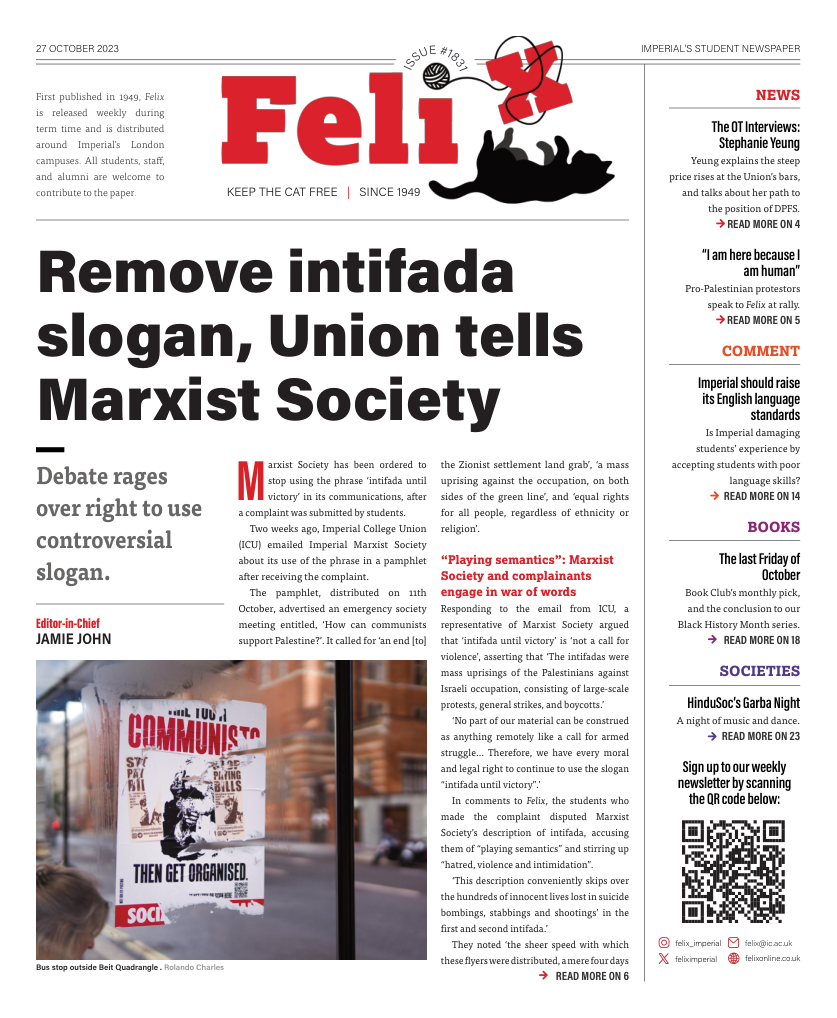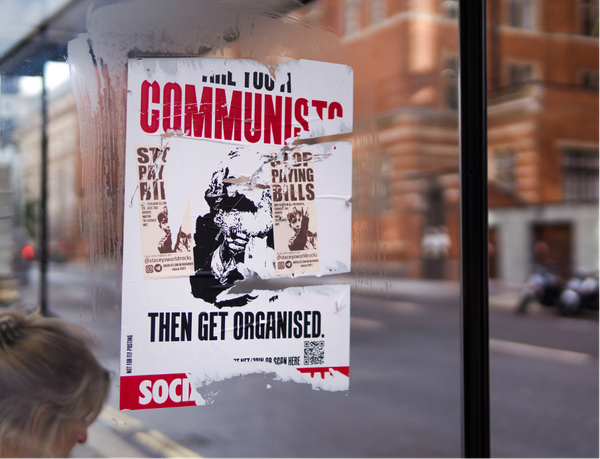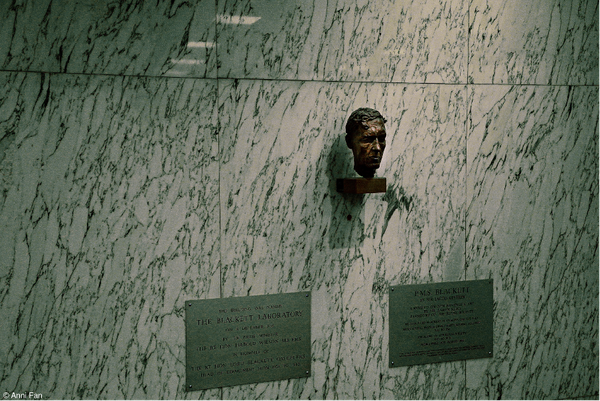The OT Interviews: Stephanie Yeung
Stephanie Yeung explains the steep price rises at the Union's bars, and talks about her path to the position of DPFS.
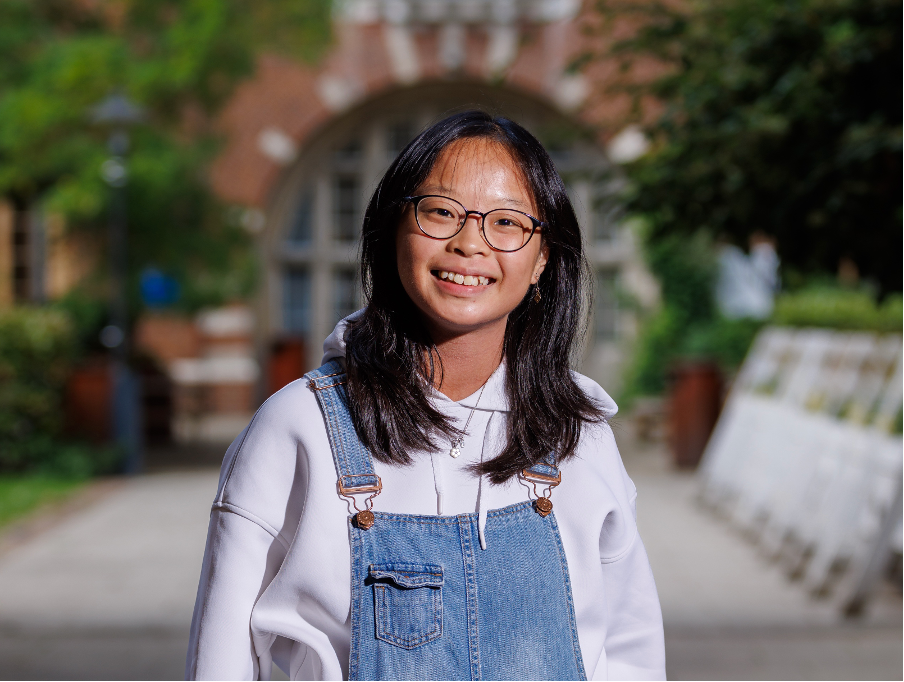
Accompanying Stephanie Yeung to departmental talks in Welcome Week, I am struck by her frenetic energy and enthusiasm. She jumps, points, paces, and nods frantically in agreement when other Officer Trustees (OTs) address the audience. “Y’all have a good day!” she exclaims to freshers at the end of one talk, breaking out into a broad smile with both arms outstretched, as she gives the audience a thumbs up.
She is equally animated when I interview her two weeks later. Her face lights up while talking about the contraption that synchronizes the clocks in the Union Building (Yeung recently graduated with an engineering degree), and she does a full 360° spin in her swivel chair as she considers her answer to a question.
Her joviality belies a serious interest in her role – and in the student experience – one that becomes apparent as we speak.
“I grew up in Hong Kong,” she says, as we settle down for the first of two interviews. “I was raised there for 18 years, and then I came to London to study at Imperial.”
Societies played a big part in Yeung’s time at Imperial. She says she joined Skate Society first, describing it as a “very cool time of my life”, where she “met very cool people”, but she is “done living life on wheels for now.”
“I thought my 13 years of ice-skating experience would translate well into roller skating. It did not. I kept falling on my knees and have been traumatised since.”
Yeung says one of her favourite experiences at Imperial was Mahjong Society. “After COVID hit, I personally brought it back to life, which was quite fun. It was on the brink of death, and as far as I’m aware, it’s doing great now. Members keep coming, and tonight, I’m going to their first regular social this year.”
Besides her societal experience, she has chaired the Union’s Ethics & Environment Network, and, in her final year, acted as Recreation Management Group Chair. These roles brought her into contact with Niamh McAuley and Sam Lee, the previous two Deputy Presidents for Finance and Services (DPFS).
“Working with Sam, and later Niamh, drew me into the role, because I saw it combined the two things I enjoyed while doing my undergrad: the sustainability side and the clubs and societies.”
“On top of that, the Union services are something else under my role, which I previously had not engaged with much. Initially, I thought that might be a weakness, but there’s a reason I haven’t engaged with our services – it’s a gap I’d like to tackle.”
Yeung suggests that the reason she hasn’t engaged with the Union’s services is because she doesn’t drink. “A lot of our events which are drinking heavy – or drinking oriented – do not interest me.”
One of her manifesto goals this year is to deliver a wider range of events – including some not based around alcohol.
“Creating that space for myself and other students who’d like to avoid drinking-oriented events is important,” she says, taking a sip from a fizzy blackcurrant drink – her favourite at FiveSixEight.
Stephanie says that there are non-alcoholic drinks available at Union venues. But she says that the Union is printing new menus for its bars to advertise them more prominently, and has also introduced more non-alcoholic beers to its selection. In the longer term, she wants to increase the quality of non-alcoholic drinks served at Union bars.
“One thing I’m keen on is introducing is more wellbeing-related events,” she says, when I ask what new non-alcoholic events she is planning to hold. “I want the Union to be a social environment for students to come and relax – no pressure to do anything – just be here and relax, because university is stressful.”
“But I am quite open to ideas, and I have an events forum planned – because what I want to put on might not be what students want.”
“I would be interested to see what societies want to offer and whether we can collaborate. I think a lot of our societies are filling the gap when it comes to non-drinking events, because they have something they’re very good at, and I’d like to offer that experience to all our students.”
Food and drink prices
The next time we meet, I ask Yeung about the increase in food and drink prices at Union venues over the past year. Students have been vocal in expressing their frustrations, venting on social media and in conversations on campus.
“The main reason for the price increase is inflation,” says Yeung. “Inflation on the suppliers’ end means we have to increase the price on our customer’s end as well. We have no choice. But we have been doing our best to minimise costs where we can.”
“We’re breaking even at our venues,” she says when I ask why the Union hasn’t absorbed any of the price increases. “We haven’t been pocketing any extra money.”
But, she says, “We are putting out a new tender for our alcohol supply in November, with the aim that whoever wins the tender will provide us with a better deal that would allow us to potentially reduce costs from January onwards.”
Students have observed that the Eastside Bar – a College bar located in Prince’s Gardens – serves cheaper alcohol than the Union’s venues. I put this to Yeung.
“The Eastside Bar is managed by the College [specifically Taste Imperial, Imperial’s catering department]. The College has more outlets, so they have bigger buying power as a whole, because of the volume and size they operate at. Compare that to us [Imperial College Union]: we have four bars in total.”
Keeping the flame alive for 12 months is not easy
Imperial students have also complained that other student unions in London charge less for their alcohol. Yeung says this is because they are part of the National Union of Students (NUS), a collective of student unions which purchases items in bulk, reducing their costs per unit.
I point out that Imperial used to be part of the NUS – in fact, Imperial College Union (ICU) was a founding member in 1922. It left in 1923, and has since then rejoined and left three times. Its most recent departure was in 2008.
Why has it not rejoined since then? Simply because none of ICU’s OTs have re-examined the case for membership, says Stephanie.
“Generally, we’ve been doing fine on our own since then,” she explains. “It’s not something that’s out of the question – if students want to see that happen, we can make it happen. It’s just something that’s been swooped off the radar, because nobody’s really thought about it in years.”
Yeung’s own plan to decrease prices at ICU’s venues is linked to her ambition to make the Union a more inclusive place for students. She tells me she will listen to student proposals at her event forums, and plan new events to cater to their interests.
“I would very much love for them to see the Union as a space they can use,” she says. She hopes that an increase in footfall will drive higher revenues, which she will use to subsidise food and drink.
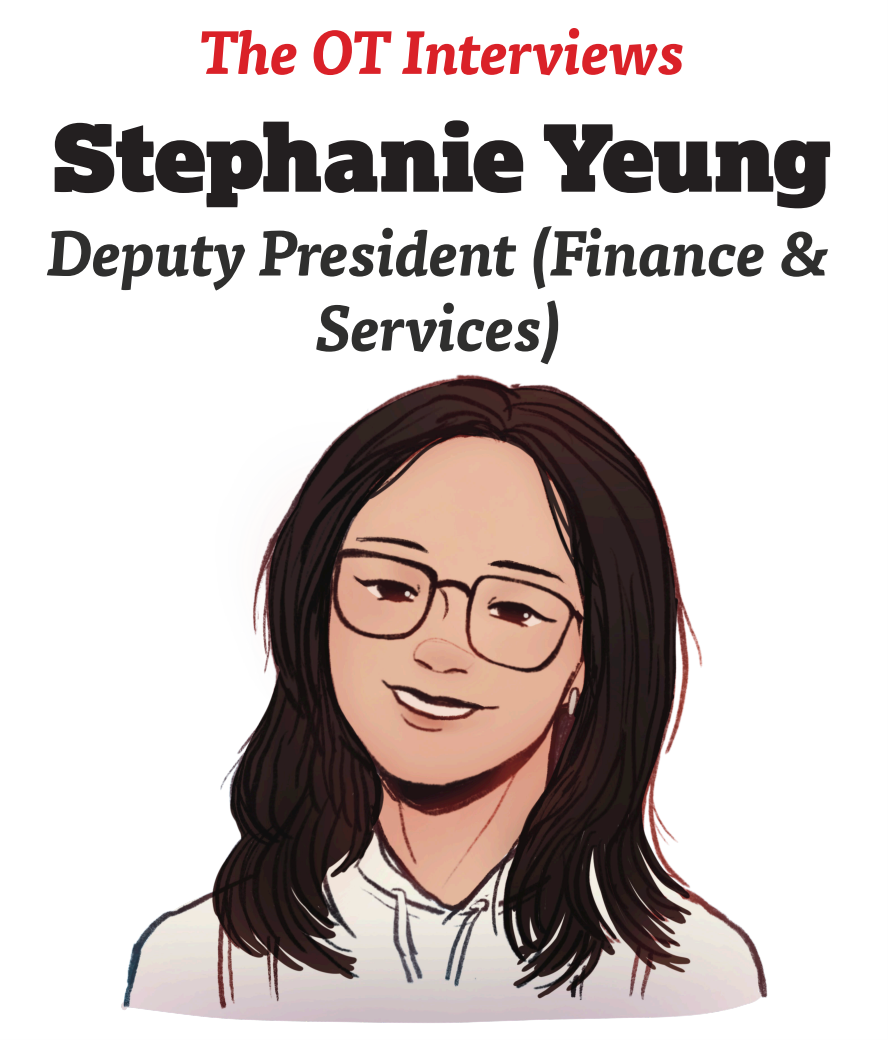
The job title
Of the five OTs, Yeung’s job title is the most confusing. “It’s not the most representative name for the things I do,” she says. She says that the Union’s Activities and Venues teams carry out much of the day-to-day operational work.
“I’m only elected for a year, so I can’t provide continuity the way our staff can. My job is introducing new ideas to what they are already doing – bringing new perspectives and connecting with our community. For me, it’s like, ‘Hey, what about we do this to push my goal,’ and then I’ll work with them on implementing it.”
She says she does help the Deputy President (Clubs & Societies) with some operational work, such as administering society finances and approving activities.
The final part of her portfolio is sustainability. “While it’s not covered in my title, it is part of my job,” she says. Yeung – like the other OTs this year – is passionate about sustainability, and the Union has published a new policy that requires clubs and societies to ensure that their third-party relationships are consistent with the Union’s own sustainability goals. She implores students to attend her monthly forums on sustainability so that their views are heard. (To learn more about Yeung’s sustainability goals, read her interview with Felix’s Environment Editors.)
Like this year’s Union President Camille Boutrolle, Yeung believes that ICU needs to better represent parts of its student community. Yeung highlights postgraduate students. “I think it's important to admit we haven't done our best to represent our postgraduate community here. 50% of our population is postgraduate students.”
“I want them to be included and represented within the Union. Our community is more than our undergraduate students.” She says the Union is reviewing the results of a report it authored with the Graduate School on the postgraduate experience, and will soon make changes to its provision so that it can better serve them.
Yeung says that passion for the DPFS role is the most important requirement for those thinking of running next year. “Ideally they should have a little bit of background, but just because you’re not experienced in all the areas that the DPFS job covers, doesn’t mean you shouldn’t consider running.” She puts forward herself as an example – a teetotaller who “came into the job with minimal knowledge of how a bar runs.”
“Anything you don’t know about, there are people to support you within the Union.”
“So far, all of us OTs are still driven to achieve the goals we set out to do. Keeping that flame alive for 12 months is not easy, because there are things that will stand in your way. Having that drive is important.”
If you liked this piece, consider signing up to our weekly newsletter for the latest Imperial updates. Follow the instructions here if interested.

